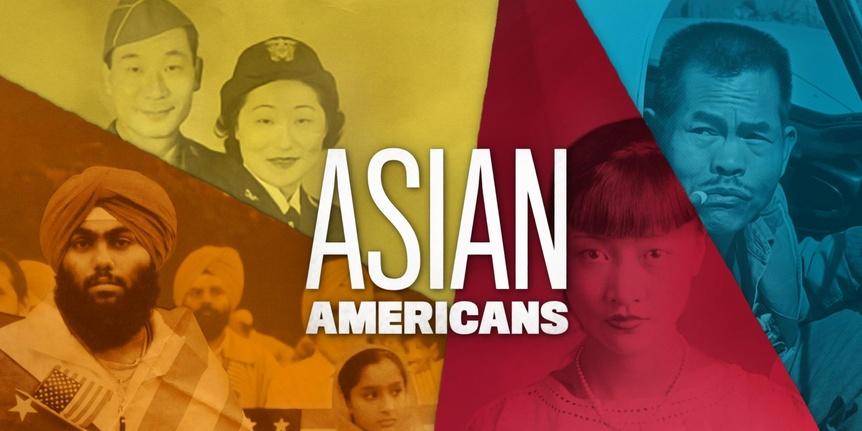As Mike Nakayuma tells it, enlisting in the military “was not a deeply thought-out decision.”
Soon he was in Vietnam, heading into the jungle to induce firefights. A month away from going home, he was seriously wounded. “I thought, ‘I’m going to die.’” he says in “Asians Americans,” the compelling, five-hour documentary Monday and Tuesday (May 11-12) on PBS.
At the field hospital, the others were treated; he asked when it would be his turn. “They said, ‘Oh, you should have told us you were American. We thought you were a Gook.’”
There had been previous signs of that, he says in the film. In boot camp, a drill sergeant had him stand in front of the others, then said: “This is what a Gook looks like.”
For Grace Lee, who produced that segment of “Asian Americans,” those were key moments. “We’re the perpetual foreigner,” she told the Television Critics Association in January, “(even in) Vietnam.”
That’s a problem that still lingers, U.S. Rep Judy Chu (D-California) said in an April 30 videoconference. “We’re all worried about the anti-bigotry that the pandemic has (stirred) …. At its height, there were over 100 incidents reported each day.”
It’s “the cycle of history repeating itself,” journalist Helen Zia said in the videoconference.
Back in 1875, Congress banned the immigration of Chinese women; in 1882, it expanded that to ban any immigration from China. “Asian Americans were really the first so-called undocumented immigrants,” Renee Tajima-Pena, the film’s producer, told the TCA. It was “totally based on race.”
That was loosened a tad in 1943 (allowing 105 people per year) and 1952, then dropped in 1965.
There were other racial divides, including the World War II internment of 120,000 people with Japanese roots, the majority of them American citizens. “My father’s family were interned at Manzanar Japanese-American imprisonment camp,” Tamlyn Tomita, who narrates the film, told the TCA.
So were others. The second hour tells of the harsh treatment of one businessman whose son had moved to Japan, first as a reporter and then as a military translator.
Such attacks come in times of crisis. “I had never been targeted the way I was after 9/11,” comedian Hari Kondabolu said in the videoconference.
He’s an American native whose parents are from India, but that still brought him waves of anti-Arab attacks. In the same way, Vincent Chin, who was Chinese-American, was killed by a Detroit autoworker in 1982, when resentment of the Japanese auto industry was seething.
And in the same way, we now “have people blaming everyone who looks Chinese,” Darren Walker,
president of the Ford Foundation, said in the videoconference.
But the film also has moments of triumph – some of them long ago. Tajima-Perez points to Wong Kim Ark, an American native who visited China, then was denied re-entry to the U.S. In 1898, he took the case to the Supreme Court and won. “As a result,” she told the TCA, “if you’re born here, even if you’re the child of immigrants, you are an American citizen.”
The film points to other triumphs in politics, business (we meet Jerry Yang, co-founder of Yahoo) and labor. “Filipino farmworkers … were the first people to organize for a strike in Delano, Cal.,” Lee said.
They merged with Cesar Chavez and Dolores Huerta to create the United Farm Workers and the historic grape boycott. “I studied history,” Lee said. “I’m interested in Asian American history in particular, (but) I didn’t even know that.”
– “Asian Americans,” 8-10 p.m. Monday and 8-11 p.m. Tuesday, PBS
